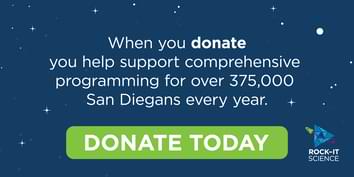Craveology Cafe and the North Star Science Store are temporarily closed for renovation.
Meg Critcher
Hi, I’m Meg! I’m an international student, a non-binary lesbian, a glycoscientist, and a chemical biologist. My journey to becoming an openly queer scientist was not straightforward, and academia is not somewhere I naturally feel comfortable. In high school, anyone who wasn’t straight and gender-conforming was ostracized, which greatly curtailed my discovery of my sexuality and gender identity. This unwelcome environment contributed to my leaving school early. It wasn’t until I watched the TV series Orphan Black years later that I was exposed to a queer female scientist, albeit fictional. This character, a Ph.D. student, resonated so strongly with me and helped reignite my love for science. This was the first time I realized how impactful representation and visibility are, and I was inspired to return to education.
I enrolled in community college for a vocational science qualification, something that is looked down upon in the United Kingdom, and I’m not aware of anyone having earned a Ph.D. with this qualification. However, I believe that diversity fuels the creativity that underlies scientific discovery and that this is something that should be celebrated. Each person has a unique background and outlook shaped by their experiences and intersectional identities, which are continuously evolving. Indeed, my own identity is still evolving, and have recently embraced she/them pronouns, though I haven’t previously shared this publicly out of apprehension.
During my time previously spent at Scripps Research’s sister campus in Florida, I was one of the few openly queer students and made myself a resource for incoming LGBTQ+ students. At recruitment events, it was incredibly gratifying to watch someone realize they aren’t alone and are welcome in this community and to witness our student body diversify. Increasing the visibility of underrepresented people at all levels in academia is critical to a welcoming environment, and this is something I continue to strive towards creating.
¡Hola, soy Meg! Soy estudiante internacional, lesbiana no binaria, glicocientífica y bióloga química. Mi viaje para convertirme en una científica abiertamente queer no fue sencillo, y la academia no es un lugar en el que me sienta naturalmente cómoda. En la preparatoria, cualquier persona que no fuera heterosexual y conforme al género era condenada al ostracismo, lo que redujo en gran medida mi descubrimiento de mi sexualidad e identidad de género. Este ambiente desagradable contribuyó a que dejara la escuela antes de tiempo. No fue sino hasta que vi la serie de televisión Orphan Black años después que estuve expuesta a una científica queer, aunque ficticia. Este personaje, estudiante de doctorado, resonó tan fuertemente conmigo que me ayudó a reavivar mi amor por la ciencia. Esta fue la primera vez que me di cuenta de cuán impactantes son la representación y la visibilidad, lo que me inspiró para volver a la educación.
Me inscribí en una universidad comunitaria para obtener un título de ciencias vocacionales, algo que se menosprecia en el Reino Unido, y no tengo conocimiento de que alguien haya obtenido un doctorado con este título. Sin embargo, creo que la diversidad alimenta la creatividad que subyace al descubrimiento científico y que esto es algo que debe celebrarse. Cada persona tiene un trasfondo y una perspectiva únicos moldeados por sus experiencias e identidades interseccionales, que están continuamente evolucionando. De hecho, mi propia identidad aún está evolucionando, y recientemente he adoptado los pronombres ella/elle, aunque no lo había compartido públicamente por aprensión.
Durante el tiempo que pasé anteriormente en el campus hermano de Scripps Research en Florida, fui una de las pocas estudiantes abiertamente queer y me convertí en un recurso para los estudiantes LGBTQ+ entrantes. En los eventos de reclutamiento, fue increíblemente gratificante ver a alguien darse cuenta de que no está solo y que es bienvenido en esta comunidad y presenciar la diversificación de nuestro cuerpo estudiantil. Aumentar la visibilidad de las personas subrepresentadas en todos los niveles académicos es fundamental para un entorno acogedor, y esto es algo que sigo esforzándome por crear.
